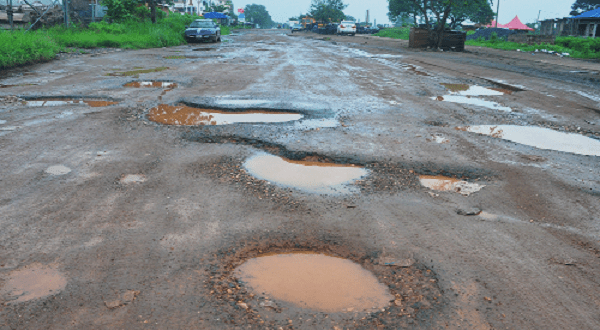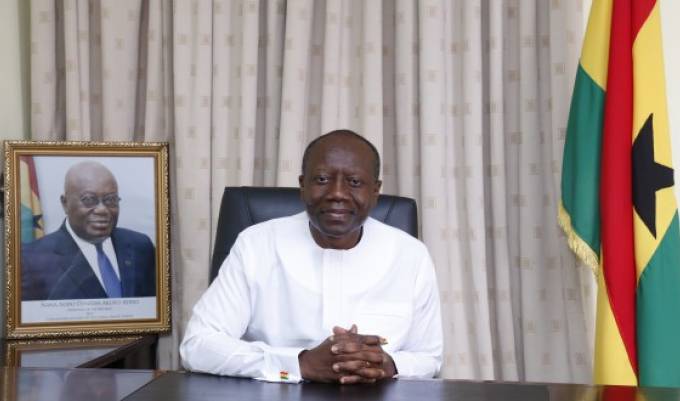These 5 areas are expected to take lead in the 2020 Budget to be delivered by the Minister of Finance Ken Ofori Atta, this week.
1. TAX Issues
Missing Revenue Targets
Government has not been able to meet its tax revenue targets for 2019. Reasons could be that the GH¢58,884 million was over-ambitious. Total budgeted revenue and grants was expected to increase by 25.8% from GH¢46,808 million in 2018 to in GH¢58,884 million in 2019. In the mid-year budget review in June 2019, government missed the mid-year target by over GH¢ 4 million realizing only GH¢22.8 million out of the projected GH¢27.0 million. There were calls by IFS in November 2018 after the presentation of the 2019 budget for government review downwards.
Another factor for failure to reach the target was due to the limited coverage of the tax net. The informal sector is still not well covered in terms of the tax net and have virtually evaded tax. Statistics from the Ashanti region for example pointed to less than 5% of the informal sector paying taxes. Out of the estimated 6 million taxpayers, only 1.5 million paid their taxes with 200,000 being from the informal sector.
Taxes: Too many and Complicated
In one breath tax revenues are not met, but in the same breath citizens are complaining of too many taxes and the entire complications of the tax system. This is because only the narrow tax bracket are further being squeezed to pay more. Significant among them are the CST tax which was increased from 6 percent to 9 percent. There was the luxury vehicle tax that was introduced and repealed. The Finance Minister has recently intimated that, government would review the entire tax system in 2020.
2. Over spending in 2020 Election year
This is on the heart of many citizens. It has been a bane on the nation’s prosperity and progress. How governments in power since 1990 seem to abuse incumbency in the use of the nation’s resources for political campaigning. Citizens would expect that the Minister of Finance gives a realistic road map beyond just assurances that the government would not overspend during the elections. The International Monetary Fund projects Ghana’s debt ratio will be about 63% of gross domestic product by the end of the year, compared with 51% in January.
3. Bail Out of Investors and Depositors
Tough, this happened mostly in 2019, the spillover into 2010 is imminent. The just ended clean-up of the investment management sector has brought about another burden. This has initially been estimated at GH¢8 billion. However, this is likely to go up as investors file for their claims. In addition, not all the deposits claimed under the closures of the savings & loans and microfinance would be paid in 2019 in spite of the receivers intention to do so.
In July during the mid-year budget review, the Finance Minister revealed that the cost of the ongoing financial sector clean up is likely to reach GH¢21 billion ($3-$4 billion) by close of 2019. Ghana Talks Business however projects that this could be higher still excluding the newly announced investment management clean-up.
The reason why this is a big take into 2020 Budget is that paying up the depositors claims would spill over massively into 2020.
The World Bank predicts that this could be as high as 1.6% of the GDP.
4 Expenditure on Roads in the 2020 Budget
The nature of roads in the country continues to deteriorate badly. Governments has assured citizens to fix both highways and inner-city roads. The good number roads mentioned under the Sinohydro arrangement have not kicked yet. Government needs to make good the promises on fixing the roads. President Akufo-Addo during the launch of the 2 billion-dollar agreement to commence work on the first-ever interchange in Tamale, said all projects will have to be completed within 30 months from the commencement date in April 2019.
The Sinohydro Project

The first phase of the project will see over 80 kilometres of inner city roads in Acrra improved, and over 100 kilometres of inner city roads in Kumasi and Mampong upgraded. Also, the construction of interchanges in Tamale and Sekondi.
The traffic prone Adenta-Dodowa road will be dualised while several kilometres of feeder roads in the Ashanti and Western North regions will be rehabilitated.
A total of 39 kilometres of roads within Sunyani and Berekum in the Bono Region will be upgraded under the first phase, while Prestea township roads will also be upgraded.
This would be a determining factor in how the electorate receives incumbent MPs in their campaigns. The danger is for government to rush to award contracts. The result is hurriedly rush jobs which buckle up three months after elections. That is wastage that compound the woes of the nation and hits the national budget hard. The 2020 budget is expected to throw further light on the performance.
5. Funding of Free SHS
This is the big cat in the box. Funding the free SHS has been an albatross on the neck of the government. The debate still goes on whether indeed, SHS should have been this free. In 2018 the free education project took over. For instance, out of the GH¢1.546.38 billion approved to be spent as Annual Budget Funding Account (ABFA) in the year 2018, education alone received over GH¢417 million representing 27%. Though the President has hinted a cut on the ABFA for education 2019, the other sources of funding for the free SHS has not been clearly stated. The government would be expected to come clear on the other sources of financing for the free SHS in the 2020 Budget.








